
IIs Pentadeca-Arginate (PDA) the Next Generation of BPC-157? A Smarter, More Stable Healing Peptide You’ve Never Heard Of
What Is BPC-157 and Why Has It Been So Popular?
BPC-157, a 15-amino acid peptide derived from a protein in human gastric juice, exploded in popularity for its reported ability to accelerate tissue repair, reduce inflammation, and support gut healing. But its major limitation? Poor oral bioavailability — it breaks down quickly in stomach acid, often requiring subcutaneous injections.
What Is Pentadeca-Arginate (PDA)?
Pentadeca-Arginate (PDA) is a synthetic peptide with the same number of amino acids as BPC-157, but with a critical difference: it includes an arginine modification that makes it far more stable in acidic environments. That means it could be more effective when taken orally — no needles required.

Do ACL Tears Always Need Surgery?
A torn anterior cruciate ligament (ACL) is one of the most feared knee injuries, especially among athletes and active adults. But while surgery is often the first thing people think of after hearing “ACL tear,” it’s not always necessary.
Whether you need ACL reconstruction surgery depends on several factors: your age, activity level, degree of instability, associated injuries, and personal goals.
This article explores when surgery is essential—and when it may not be.

Do Herniated Discs Need Surgery?
If you’ve been diagnosed with a herniated disc, you might be wondering if surgery is inevitable. The good news? Most don’t need it. In fact, the majority of disc herniations improve with structured rehabilitation, not scalpels.
Let’s break down who needs surgery, who doesn’t, and how to get back to pain-free movement.

Do I Need Surgery for a Torn Rotator Cuff?
A torn rotator cuff can be painful, frustrating, and disruptive — but it doesn’t always mean you need surgery. Whether you’re an athlete, weekend warrior, or just struggling with shoulder pain, here’s what you need to know about when surgery is necessary, and when it’s not.

Gary Brecka: Biohacker or Bullsh*t Artist?
Gary Brecka brands himself as a “human biologist,” wellness expert, and life extension specialist. He rose to prominence through partnerships with 10X Health and appearances on major podcasts like The Joe Rogan Experience, often using complex biochemistry language to promote alternative health strategies.

Peptides: The Next Generation – What’s Coming in 2025 and Beyond
The world of peptides is evolving faster than ever. Once reserved for elite athletes and underground clinics, peptides are now entering the mainstream—reshaping the way we approach fat loss, injury recovery, muscle growth, gut health, and even cellular aging.
In 2025, a new generation of peptides is emerging—backed by cutting-edge science, improved delivery systems, and a far deeper understanding of human physiology.
Whether you’re interested in peptides for fat loss, anti-aging, sports performance, or inflammation control, this is what’s coming next.
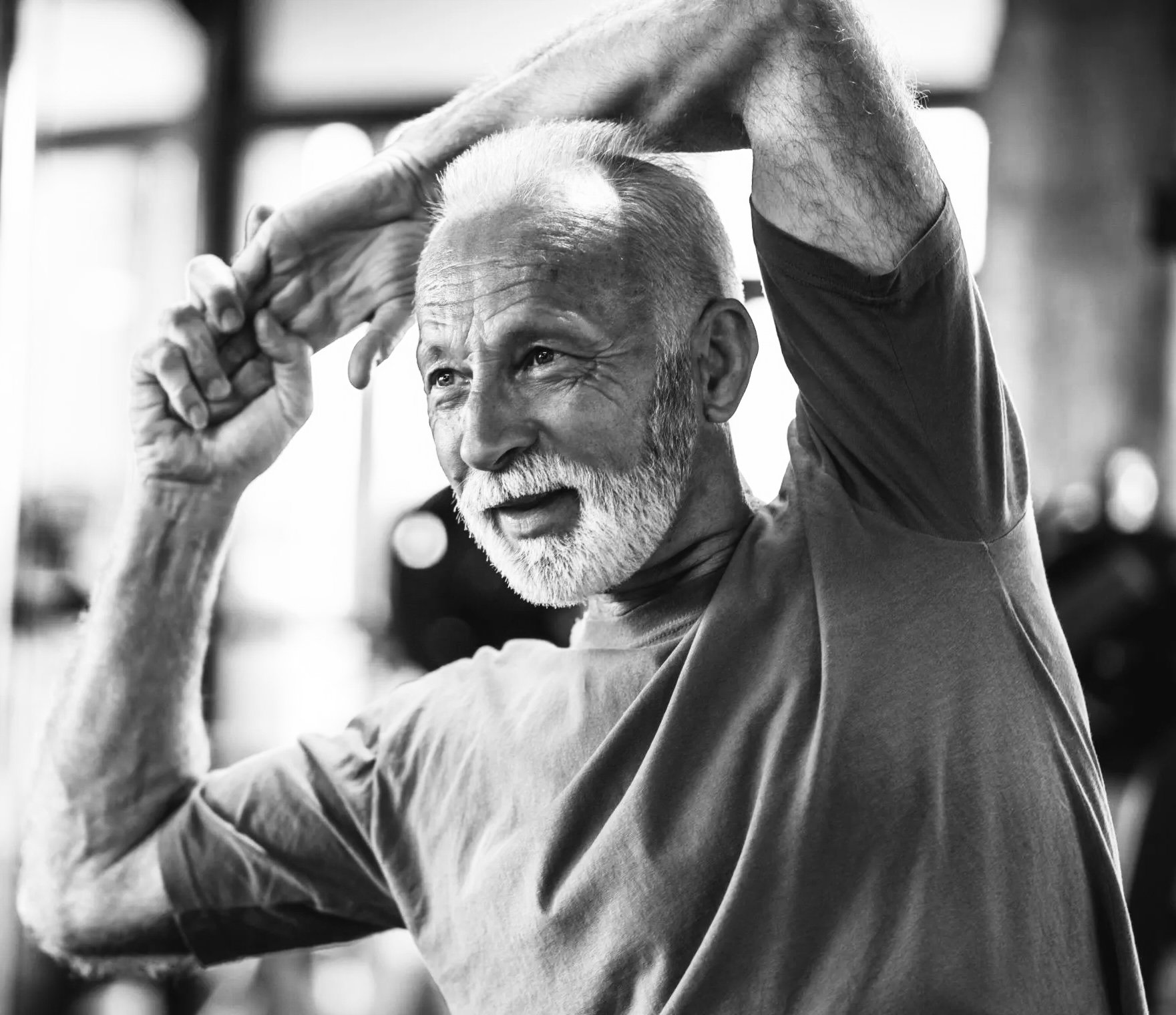
TRT for Men Over 40: What to Expect, How to Dose, and Why It’s Not a Silver Bullet
After 40, testosterone levels begin a slow but steady decline — around 1% per year. For some, this is a gentle shift. For others, it feels like falling off a cliff. Lower energy, reduced libido, loss of muscle mass, poor recovery, brain fog, increased belly fat, and even depression can all point to low testosterone.
But symptoms alone don’t equal a diagnosis. Before you go searching for a miracle cure, here’s what you need to know about TRT — the good, the bad, and the realistic.

The Illusion of Safety: Why “Gentle Progression” Might Be Holding You Back
Seated fitness classes are often marketed as a safe, age-appropriate option for older adults. “Gentle Progression,” balance drills with foam sticks, or slow chair exercises promise better mobility, improved coordination, and independence.
But here’s the truth no one wants to say:
If it doesn’t challenge you, it doesn’t change you.

The Polished Grifter: When Charisma Replaces Credibility in Health & Performance
We’re in an era where “health optimisation” is big business. From longevity clinics and cold plunge reels to $300 hydrogen water bottles, the wellness industry has never looked more advanced — or more misleading.
Enter: the polished grifter.
This isn’t your classic snake oil salesman. These individuals look the part. They speak with confidence, reference medical-sounding jargon, and drop enough buzzwords to sound intelligent — without ever being truly accountable to results, research, or reality.
They’re not doctors. They’re not coaches.
They’re performers — selling confusion disguised as clarity, solutions wrapped in secrecy, and protocols that sound scientific but collapse under scrutiny.

The Peptide & Performance Blueprint: Build Strength, Recover Faster, Stay Legal
In the performance and recovery world, peptides are no longer underground whispers — they’re centre stage.
But with growing interest comes growing confusion.
From dodgy advice on Reddit threads to aggressive supplement brand marketing, the average gym-goer or athlete is left asking: What works? What’s legal? What’s safe?
This blog is your straight-talking guide — a blueprint for using peptides intelligently and ethically to support recovery, muscle development, and long-term performance. Especially for those over 30 who want results without wrecking their health.

Top 5 Legal Peptides in the UK (2025): What You Need to Know
Peptides have exploded in popularity among fitness enthusiasts, biohackers, and rehabilitation specialists for their potential to accelerate healing, support muscle development, and optimise recovery. But with growing hype comes growing confusion — especially around legality, safety, and sourcing.
So, what’s the real story in the UK?
Let’s get something straight: peptides are legal to purchase and possess in the UK — but only for research purposes. The Medicines and Healthcare products Regulatory Agency (MHRA) prohibits peptides being marketed or sold explicitly for human consumption or therapeutic use, unless they’re licensed as medicines.
That nuance means you’ll often see peptides sold online as “research chemicals” with disclaimers such as “not for human use.” Reputable suppliers stick closely to this wording to remain compliant — and so should you.
Now, let’s dive into the five most researched, widely available, and legally accessible peptides in the UK today.
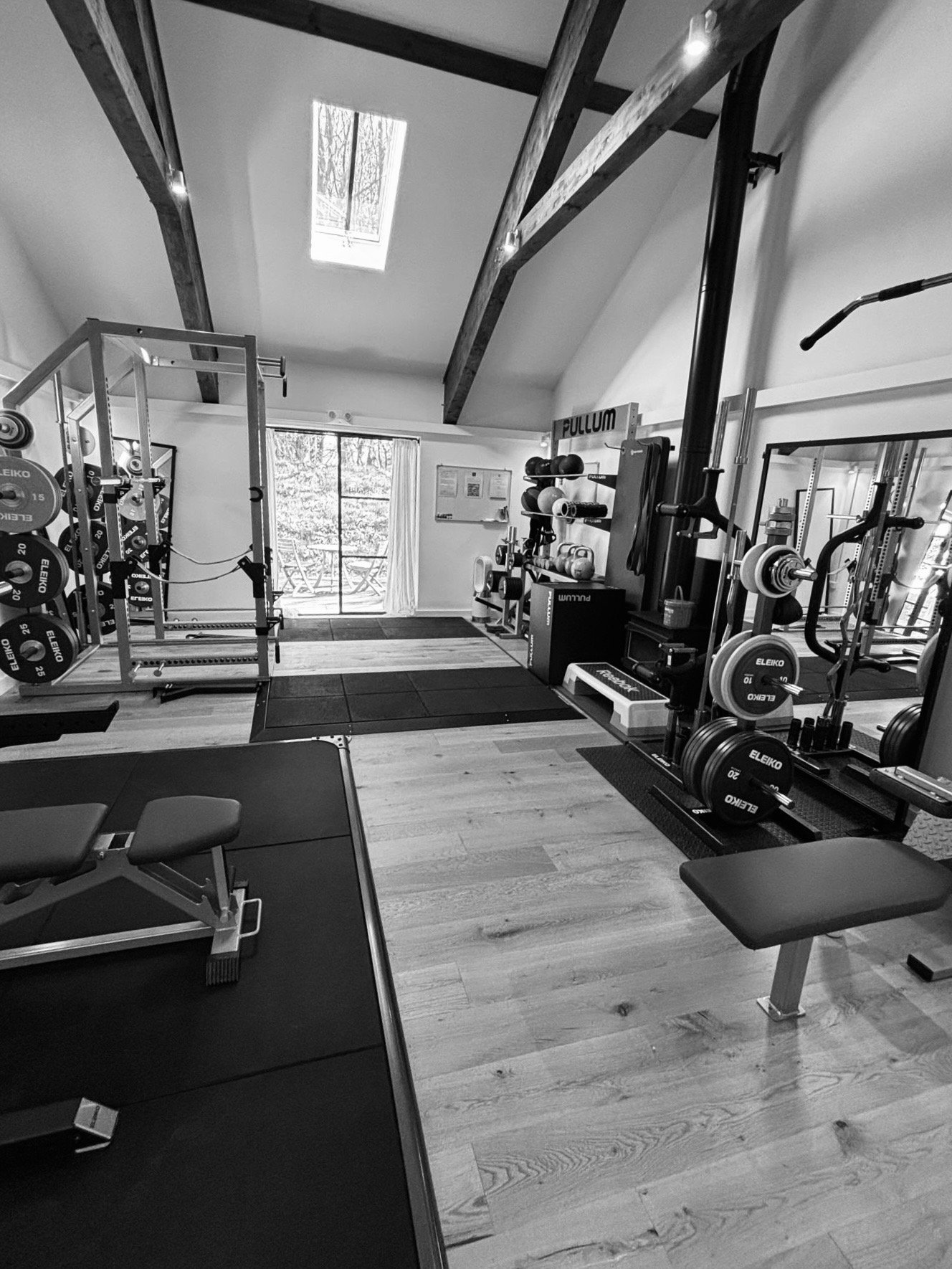
Where to Train in Dartmouth: The Ultimate Guide for Visitors and Locals
Looking for the best gym in Dartmouth, Devon? Whether you’re visiting for the weekend, spending the summer in your second home, or living here year-round, this guide will help you find where to train in Dartmouth—with options for strength training, rehabilitation, group classes, and more.
Why Train in Dartmouth?
Dartmouth might be best known for its coastal charm, scenic river views, and vibrant marina—but if you’re someone who wants to stay fit while on holiday, or if you’re a local tired of generic gyms, Dartmouth has a hidden gem waiting for you.

Rethinking Running: Load, Footwear, and the Truth About Injury
Running is one of the most accessible and effective forms of exercise—but it’s also one of the most misunderstood.
Every few years, a new trend emerges: minimalist shoes, maximalist shoes, heel striking is bad, forefoot is best, change your cadence, fix your posture… The advice often swings between extremes, leaving everyday runners confused about what’s “right” or “safe.”
At Poseidon Performance, we take a more grounded approach—rooted in evidence, clinical experience, and performance coaching at the highest level. Rather than chasing trends, we ask better questions:
Why is this runner in pain? What’s their injury history? What does their body currently tolerate? How has load been managed?
The answers, as always, are found in the details.

Testosterone, Peptides & Performance: What Men Over 40 Need to Know Before Jumping In
A middle-aged athlete stretching, representing active men over 40 who seek to maintain performance. Men in their 40s and beyond often start noticing changes in their bodies that affect performance, recovery, and libido. It’s not just in their head—male hormone levels, especially testosterone, naturally decline with age (about 1% per year after 40 on average ). This can lead to frustrating symptoms like fatigue, slower recovery from workouts, reduced muscle mass, increased body fat, lower sex drive, and mood changes . Unsurprisingly, many active men begin searching for ways to support testosterone after 40 and maintain their edge.
In this quest for vitality, two options frequently come up: Testosterone Replacement Therapy (TRT) and peptide therapy. Both are touted for boosting performance and well-being, but they work very differently. What’s the difference between TRT vs. peptides, and which (if either) is right for you? In this article, we’ll break down how testosterone and peptides each play a role in men’s health, compare their benefits and risks, and provide guidance for men over 40 considering these interventions. By the end, you’ll have a clearer understanding of each approach – and why education and medical guidance are so important before jumping in.
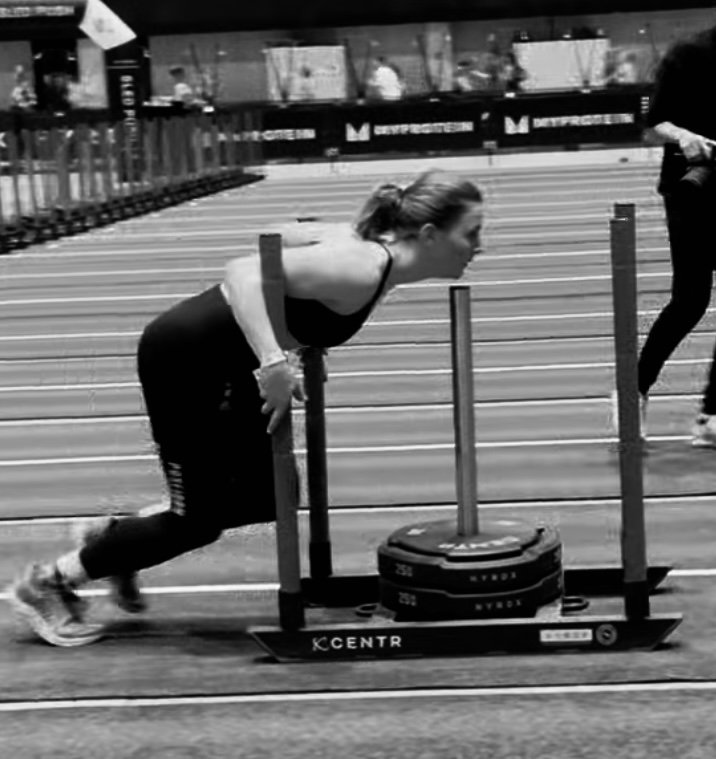
What to Know Before Your First Hyrox Competition – Tips From Coaches Who’ve Been There
So you’ve signed up for your first Hyrox. You’re excited, maybe a little nervous, and wondering what to expect. Good. That mix of anticipation and adrenaline is what makes it worth doing. At Poseidon Performance, we’ve helped first-timers, seasoned competitors, and even those rehabbing injuries get to the start line (and finish strong). Here’s what you need to know.
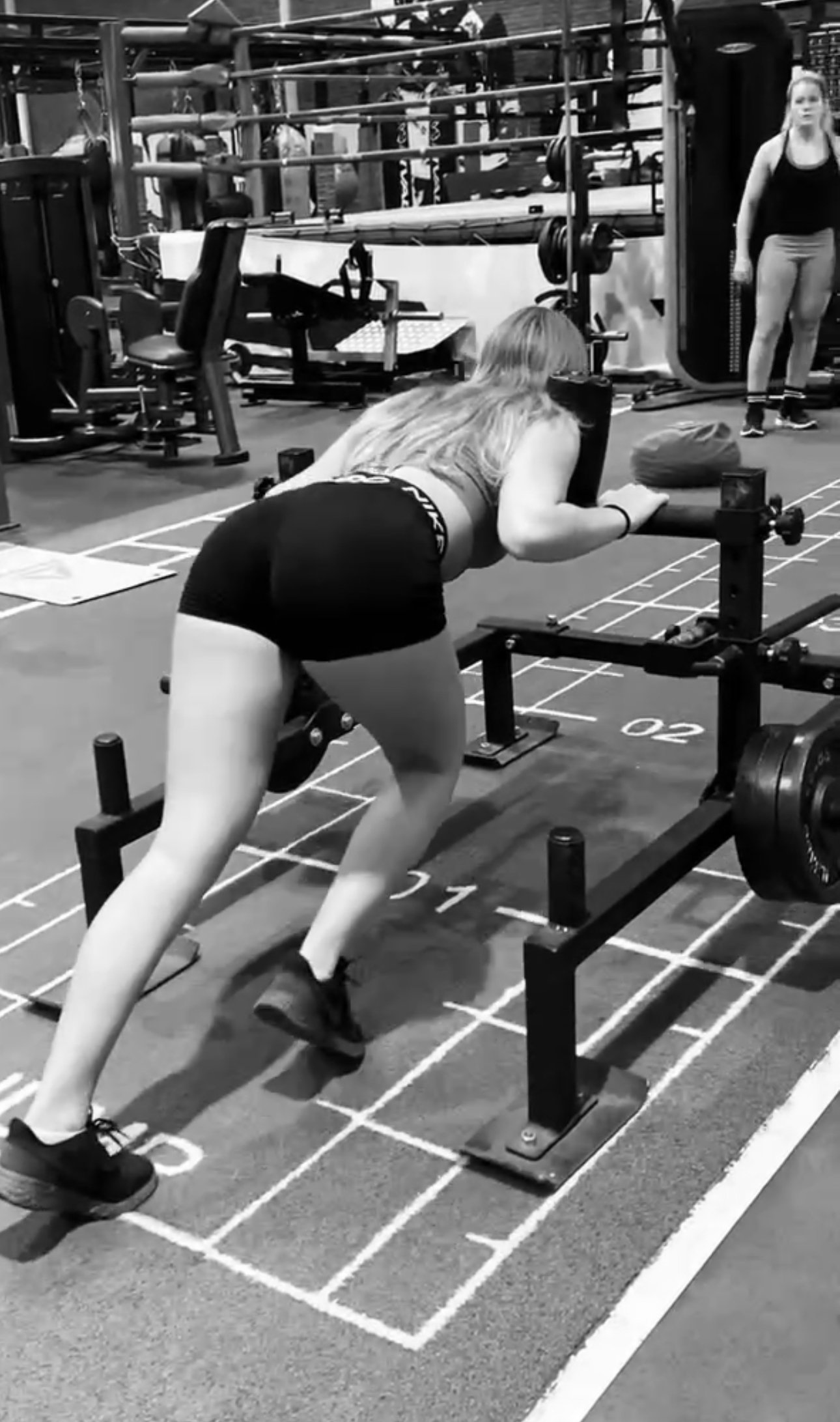
How to Train and Prepare for Hyrox: Strength, Strategy, and Smart Conditioning
Hyrox has taken the global fitness world by storm — a hybrid endurance competition blending running with functional workouts. It’s a test of strength, stamina, mental grit, and pacing. Whether you’re an athlete looking for your next challenge or someone aiming to train with purpose, Hyrox offers a clear, structured goal. At Poseidon Performance, we’ve trained everyone from world champions to complete beginners. Here’s how to train smart and show up prepared.

Fasting for Health and Performance: Intermittent, Wet, and Dry Fasting Explained
Discover how different fasting styles—from 16:8 intermittent fasting to advanced dry fasting—can optimise fat loss, inflammation control, cognitive clarity, and long-term health.
What Is Fasting? A Return to Our Evolutionary Roots
Fasting—the voluntary abstinence from food (and sometimes water)—has been practised for thousands of years. From ancient spiritual traditions to modern clinical research, fasting is now being rediscovered as a powerful tool for physical resilience, metabolic control, and cellular repair.
Contrary to common belief, fasting isn’t about deprivation. It’s about recovery, renewal, and recalibration. Our ancestors thrived with alternating cycles of feeding and fasting. Today, most people eat constantly—and our bodies never get the chance to rest, reset, or regenerate.
But not all fasting is created equal. In this article, we’ll break down the three most effective and popular fasting methods:
• Intermittent Fasting (e.g. 16:8)
• Wet Fasting (Water Fasting)
• Dry Fasting (No food or water)
Each comes with distinct physiological effects, risks, and benefits. Understanding the differences will help you choose the most appropriate fasting style for your goals—whether that’s performance, recovery, fat loss, or longevity.

Biohacking: Performance Breakthrough or Wellness BS?
What if you could fine-tune your body like a high-performance engine? That’s the promise of biohacking—a trend that’s exploded across wellness circles, performance labs, and social media feeds alike. But as with any buzzword, it begs the question: is it grounded in science or simply clever sales and marketing?
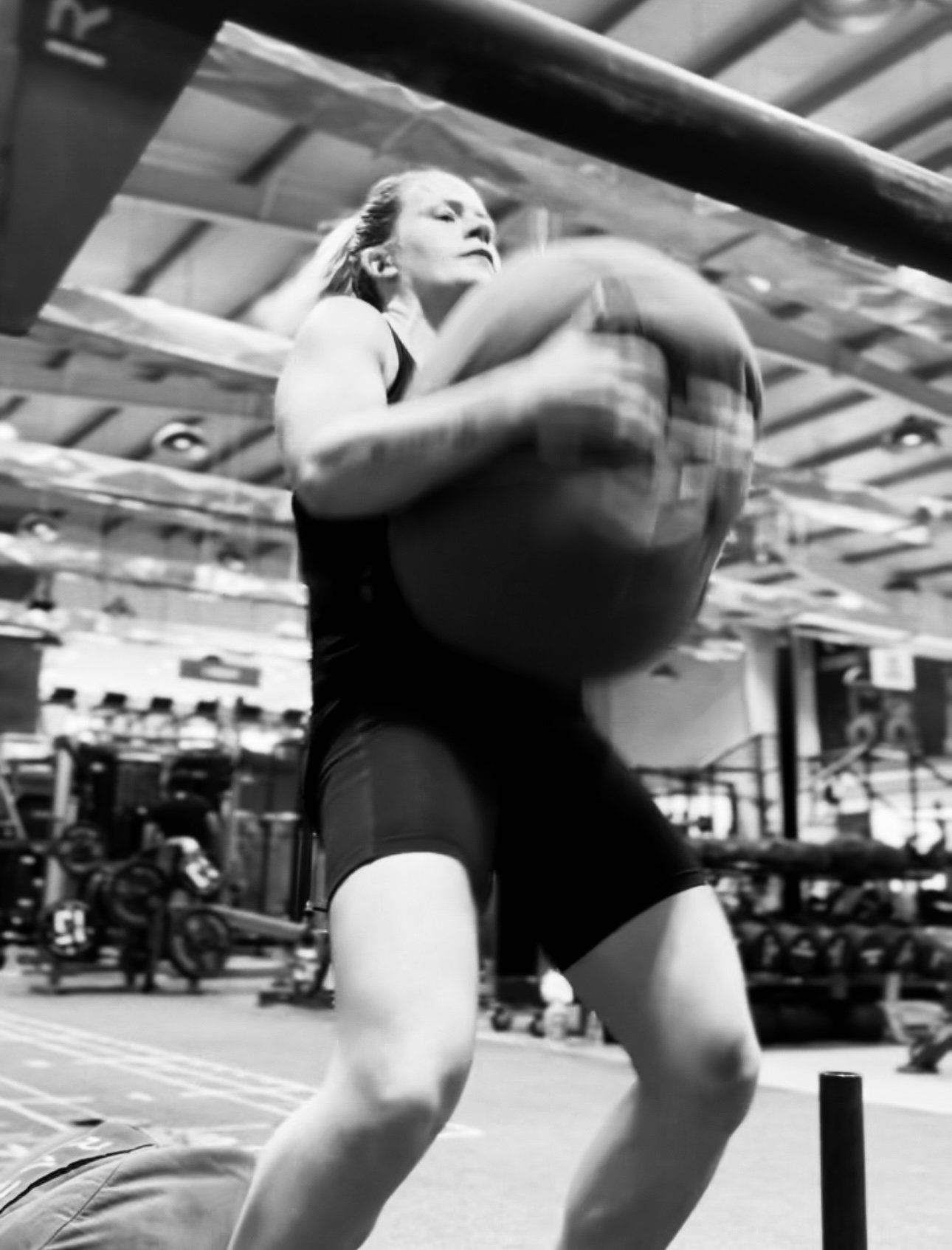
The Top 5 Brutal Conditioning Workouts That Actually Build Mental Toughness
When your main lifts are done and your lungs are still intact, that’s when the real work begins. For strength athletes looking to break plateaus—not just physically but mentally—conditioning finishers are where resilience is forged. These brutal conditioning workouts aren’t about aesthetics or burning calories; they’re about sharpening your edge, developing grit, and pushing beyond the point where most people stop.
Here are five brutally effective finishers that deliver more than just fatigue—they build mental toughness and real-world carryover for anyone serious about strength.
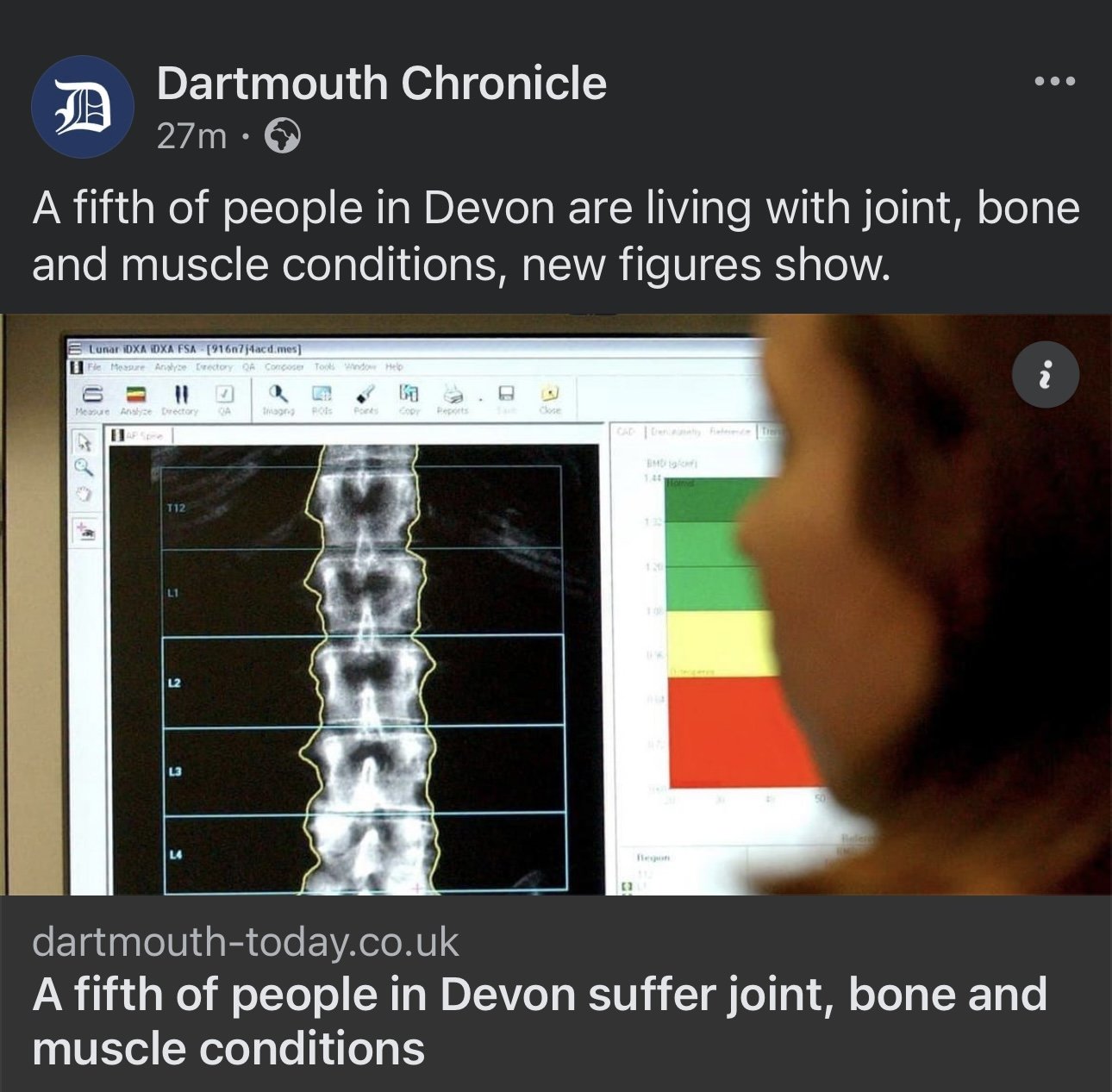
Living in Pain Isn’t a Lifestyle — It’s a Signal. Here’s What to Do About It
1 in 5 People in Devon Are Living in Pain. Quietly.
According to a recent article by Dartmouth Today, more than a fifth of the population in Devon are suffering from joint, bone, and muscle conditions — and the numbers are rising.
But here’s what struck us:
The silence.
These are not people shouting for help. They’re adjusting, accommodating, and often withdrawing. From sports. From hobbies. From social events. Even from the simple joy of walking without thinking about it.
It’s not just the physical toll — it’s the quiet, slow resignation that this is just part of getting older.


